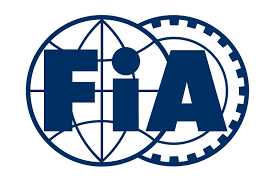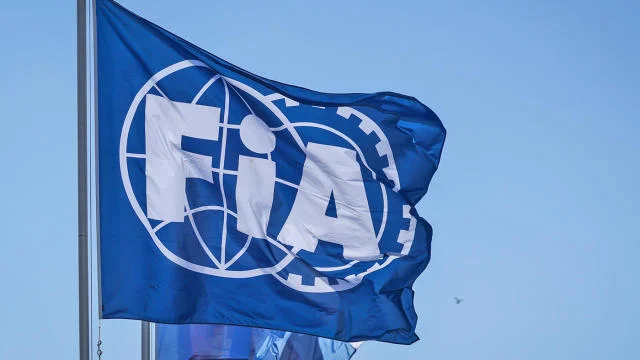The Federation Internationale de l’Automobile (FIA) is a prominent association established in 1904. It, represents the interests of motoring organizations and car users worldwide.
As the governing body for numerous auto racing events, including the prestigious Formula One. The FIA continually focuses on promoting safe, sustainable, and accessible mobility for all road users. It operates in three main areas. These are, Sport, Mobility, and Campaigns, and is dedicated to upholding the highest standards in motorsports.
The goal is to ensure fair and exciting competition.
Additionally, the organization actively engages in promoting road safety campaigns and initiatives. They are intended to create a positive impact on global sustainable mobility.
The FIA has become an influential figure in the world of motorsports and beyond.
FIA Overview
Mission and Objectives
The Fédération Internationale de l’Automobile (FIA) is a global association founded on 20 June 1904. Its mission is to represent the interests of motoring organizations and motor car users worldwide. Through its various initiatives, the FIA aims to promote safe, sustainable, and accessible mobility for all road users. The FIA is also committed to advancing global motor sport by organizing high-level racing events. It fosters unity among its members, and advocating for harmonized regulations.
FIA – Key Functions
Governing Body for Motor Sport
As the international governing body for motor sport, the FIA designs and enforces rules, regulations, and standards.
Its mandate extends across numerous racing competitions worldwide, including Formula One. This responsibility ensures fair play, integrity, and competitiveness in global motor sport events.
Road Safety Advocacy
Another crucial function of the FIA is road safety promotion around the world. The organization collaborates with its member clubs and international institutions.
The purpose is to develop initiatives that raise awareness, improve road user behavior, and reduce traffic fatalities.
Key interventions include driver education programs, vehicle safety advancements, and infrastructure improvements.
Representation of Member Clubs
The body also represents the interests of its 244 member clubs,. These include motoring and sporting organizations from 146 countries on five continents.
By facilitating communication and cooperation among its members, it helps to harmonize policies, share best practices, and advance collective goals.
Regulation of Automotive Technology and Environment
The FIA works to encourage innovation and sustainability in the automotive industry. By establishing and enforcing technical regulations, the organization promotes cleaner, environmentally friendly vehicle technologies.
It alsopaves the way for improved road safety and emission standards.
FIA Governance

Structure and Organization
The Federation Internationale de l’Automobile (FIA) has a clear structure in place to effectively carry out its duties. This structure separates responsibilities into reviewing, enacting, and enforcing sporting rules. Additionally, it promotes accessible, sustainable, and safe mobility for all road users, takes executive decisions, and resolves disputes.
Since its foundation in 1904, the FIA has grown into a global organization. Not only does it promote motor sport, but also ensures safe and sustainable mobility for all road users worldwide. In order to carry out these tasks effectively, the FIA is organized into various departments and regional organizations.
Key Personnel
The FIA is governed by a Board of Directors, responsible for supervising the organization as a whole. They oversee various aspects such as policy strategy, development, membership, dues, staffing, and organizational budgets.
The Board is assisted by Regional Advisory boards in Asia and Europe. These help it to implement and maintain FIA policies across different regions.
The FIA is able to effectively promote motorsports and advocate for safe, sustainable, and accessible transportation worldwide.
FIA Regulations and Compliance
Licensing Requirements
The Fédération Internationale de l’Automobile (FIA) is responsible for implementing and overseeing common regulations for all forms of motor sports and series across the world.
One critical aspect of these regulations involves the establishment of licensing requirements for drivers, teams, and vehicles. Each driver must obtain a license from the FIA in order to participate in various events.
The FIA enforces strict technical regulations to ensure the safety of vehicles and promote fair competition standards across events.
Reporting and Monitoring
The FIA has a dedicated Law & Compliance Division that monitors legal and regulatory developments affecting the futures and derivatives industry. This division assists FIA members by providing information to help relevant regulators and courts make decisions.
For example F1 Teams must demonstrate ongoing compliance with FIA-sanctioned financial regulations.
They do this by submitting regular reports that detail their adherence to the Cost Cap. This cap is designed to keep competition fair by limiting the amount teams can spend on operations.
It’s Technical and Sporting Regulations provide specific guidelines for automobile safety in various competition categories.
For instance, it has a Technical List that specifies approved protective clothing for drivers according to FIA standards. These rules and guidelines are constantly updated to keep pace with technological advancements and industry best practices.
The FIA ensures that motor sports remain safe, competitive, and enjoyable for both participants and spectators alike.
FIA Initiatives and Programs

Industry Development
It works creates a thriving environment for its members by developing industry-wide standards and solutions for operations and execution.
This includes supporting new technology initiatives and building communities of information and data. One noteworthy program is the FIA High Performance Program, aimed at expanding development pathways for race directors and stewards.
In the area of education, the Forging Industry Association provides several events for members, such as the Forge the Future Summer Camp and FIA Marketing Conference.
These events aim to foster collaboration and innovation among industry professionals.
International Cooperation
The FIA places great emphasis on international cooperation, as demonstrated by its Grant Programs.
These programs are guided by the principles of transparency, integrity, and fair play. The FIA openly shares information about the guidelines, selection methodology, criteria, and list of awarded projects on its website.
This essentially helps to advance global and regional projects that align with the FIA’s core objectives.
Advocating for diversity, equity, and inclusion is another important aspect of FIA’s international efforts.
The FIA works relentlessly to nurture growth and collaboration in the industry through targeted initiatives, programs, and events. By focusing on industry development and international cooperation, the FIA continues to support and champion its members’ interests.
Current Challenges and Future Outlook
Evolving Landscape
In recent years, the global economic landscape has been hit by a series of critical events, including the COVID-19 pandemic. The global economic impact of the pandemic has presented several challenges, particularly in the way it has affected commodity derivatives markets. Financial markets have been disrupted, creating uncertainty and market volatility.
The FIA has had to adapt to these circumstances in order to ensure the stability of cleared derivatives markets.
Moreover, regulatory changes and technological advancements have caused market participants to reassess their strategies, approaches, and operating models. There is a growing expectation for financial institutions and market participants to be agile, adaptive, and forward-thinking, to stay competitive within the constantly evolving landscape.
Emerging Trends
Some of the emerging trends that are shaping the future of the FIA and financial markets include the surge in digital assets utilization and sustainable finance initiatives. F
IA’s CEO has recently testified on the “Future of Digital Assets” before the US House of Representatives Committee, showcasing the importance of this topic in the financial industry.
The increased adoption of blockchain technology, cryptocurrencies, and other digital assets require the FIA to understand and address their impact on the financial markets and develop adequate regulatory policies.
Another significant trend is the growing global emphasis on sustainability and combating climate change.
The FIA has devised an Environmental Strategy for 2020-2030, focusing on strategic goals such as promoting sustainable mobility, reducing the environmental footprint of motorsport, and advocating for climate action.
The FIA ensures that it is well-equipped to navigate the evolving landscape and remain a reliable and essential organization in the financial industry.

